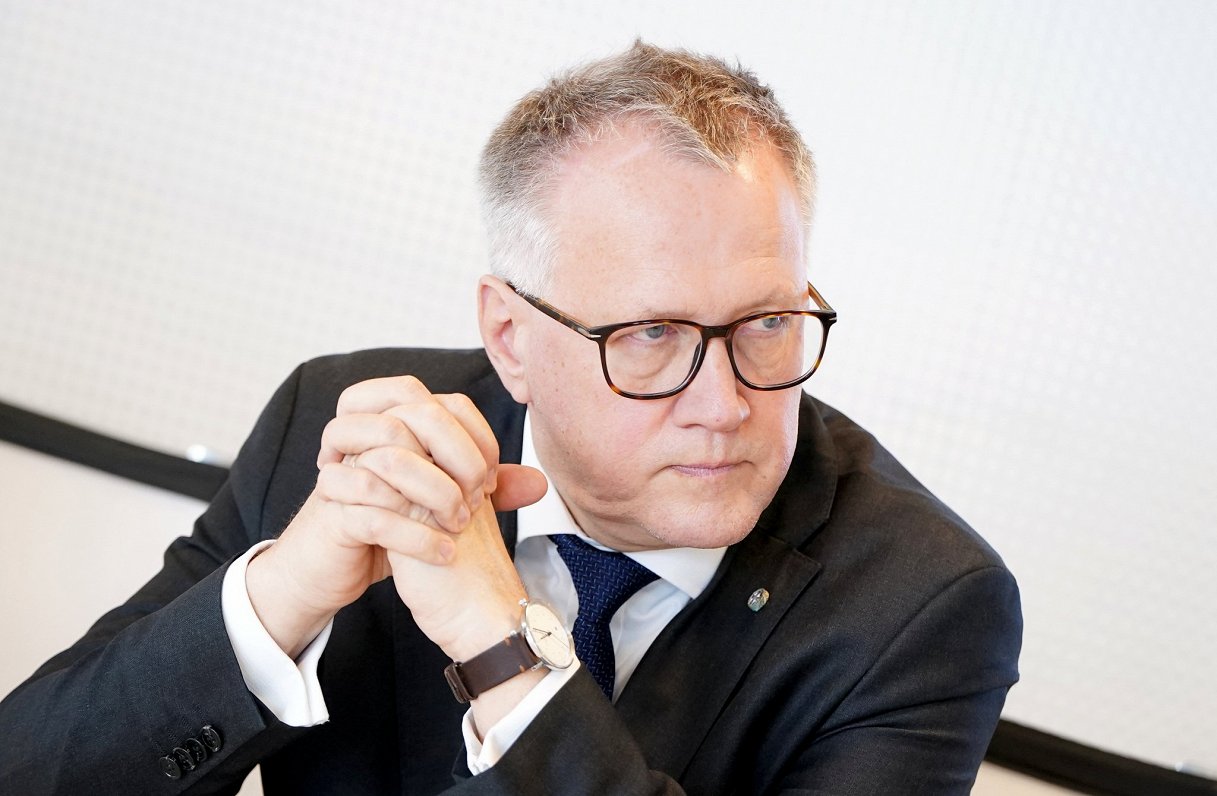There are no plans to float the largest state-owned companies “Latvenergo” and “Latvijas Valsts meži” on the stock exchange anytime soon, Finance Minister Arvils Ašeradens (New Unity) and Edgars Tavars, head of the United List Saeima faction, told Latvian Radio on 17 July after their bilateral talks.
The task of promoting State and local government companies on the capital market is enshrined in the Government Declaration.
The development of the capital market in Latvia is a necessary and encouraged measure, but each company – a potential participant in the stock exchange – should be assessed individually, taking into account both political compromises and companies’ business plans, commented the comment of the Minister of Finance.
Ašeradens said that decisions on the participation of state-owned companies in the stock market were still a long way off, mentioning the possibility that the participation of telecommunications companies LMT and Tet in the stock exchange might eventually be possible.
“As a politician, I respect the opinion of my colleagues that one or the other company cannot [be listed on the stock exchange]. We will look for solutions. At the government level, we potentially see a merger of the two telecommunications companies, which may result in a stock exchange listing. But potentially the closest to this is [Rīga water supplier] Rīgas ūdens, which has a strong performance and is the closest to developing the market,” the finance minister said.
Latvia’s capital market is not bright
Latvia’s capital market is about half a billion euros, or about 1.4% of the country’s economy. The situation of the capital market in Latvia is bad, so it is important to finally make some political decisions, said Andris Strazds, economist at the Bank of Latvia, in a discussion on the Latvian Radio programme “Krustpunktā” on Wednesday.
“We would have to increase the market size almost tenfold for global investors to start seeing that Latvia, with its stock market and companies, is on the map. This gives an opportunity for further growth of private companies and start-ups, for which the final strategy may be to sell shares, or partial listing on the stock exchange. If there are no investors, these companies will not have the opportunity to make an initial public offering in Latvia in five or seven years,” Strazds said.
The Finance Minister also identified the development of the capital market as one of the priority tasks in the coming years.
Select text and press Ctrl+Enter to send a suggested correction to the editor
Select text and press Report a mistake to send a suggested correction to the editor
Tell us about a mistake
